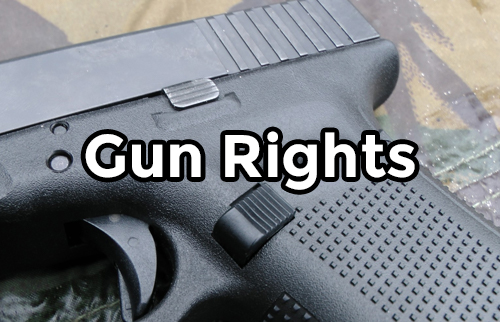What You Need to Know About the Fourth Amendment
As election season charges full steam ahead, gun control remains one of the most controversial topics of discussion. On the subject of gun ownership, the Second and Fourth Amendment are consistently powerful citations. Gun rights advocates interpret the possession of firearms as inherent to the Constitution and necessary for self-defense. In contrast, gun control advocates believe more restrictions on gun ownership may prevent shooting deaths. Objectively understanding the complexity of gun control can be challenging, as the subject is particularly emotionally charged. Partisanship aside, understanding the Second and Fourth Constitutional Amendments and their implications is central to efficiently engaging in the gun control debate.
Here are some important facts to know about the Fourth Amendment as they apply to gun ownership:
- The purpose of the Fourth Amendment is to protect people from unreasonable searches and seizures by the government.
- It does not protect against searches that are deemed reasonable. “Reasonable” suspicion can be ambiguous and is ultimately discretionary.
- The police can “stop-and-frisk” you if they reasonably suspect you’ve committed a crime or you are armed and dangerous. This is known as a “Terry Stop,” named after the Supreme Court case of Terry v. Ohio (1968). A terry stop is the brief detention of a person by police on reasonable suspicion of involvement in criminal activity but short of probable cause to arrest. This often has problematic repercussions for open-carry states, where lawful gun owners may be subject to detainment despite their Second and Fourth Amendment rights.
- The Fourth Amendment protects citizens from the police entering their homes without announcing their presence before entering. However, if the police sense that knocking will endanger their safety, they can obtain permission for a “no-knock warrant.”
- No-knock warrants can undermine both the Second and Forth Amendments. Several shooting accidents have occurred because armed homeowners believe they are being burglarized when police enter without notice. In Quinn v. Texas (2006), a Texas man was shot after the police obtained a no-knock warrant to search this home based solely on the suspicion of the presence of firearms. The firearms were legally owned and possessed for self-defense. When the police smashed open Quinn’s door in the middle of the night without warning, Quinn grabbed his gun thinking he was the victim of a home invasion. He was shot and later penalized. The Supreme Court has since refused to hear the case. Attorneys at the Rutherford Institute, a Constitutional Rights foundation, argue that legal gun ownership (as protected by the Second Amendment) is not grounds for law enforcement officers to evade the protections of the Fourth Amendment.
- The Fourth Amendment is supposed to enforce the notion that “each man’s home is his castle,” however, as exemplified, the government has concerning discretion to hinder the individual freedoms that the Fourth Amendment claims to protect—whether you are a gun owner or not.
- In sum, the Fourth Amendment ultimately safeguards the Second Amendment among other individual freedoms. Without protection from unreasonable search and seizures, the government has the power to transgress the right to bear arms and other fundamental privacy rights. It is important to know your Constitutional rights and be aware of the potential repercussions of gun legislation.

